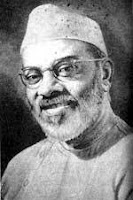Vipassana
is an ancient form of meditation based on practice of equanimity in observation
of physical sensations and thoughts. As people who practice Vipassana observe
sensations arise and pass away, they experience a lessening of both aversion of
unpleasant sensations, and of craving for pleasant sensations. The Vipassana tradition has been kept alive
since the time of the Buddha, and popularized over the last 50 years by S. N.
Goenka, who died in 2013. The practice is taught in 10 day residential courses.
People who hold
views that are incompatible with the Buddhist principle of anatta, or no self, are not excluded from attending Vipassana courses. I have practiced Vipassana
meditation, with varying consistency, for about 25 years, and associate the
practice with self-acceptance rather than loss of a sense of self. Moments of
self-forgetfulness, accompanying feelings of goodwill towards other beings,
could be described as quieting the ego rather than abandoning it. It seems to
me that Scott Barry Kaufman may be on the right track in his suggestion that
“those with the quietest ego defenses often have the strongest sense of self”.
(See Transcend,
p 204-5).
However, when
Goenkaji was asked why he only spoke of the ego in
negative terms, he replied:
“Now it seems to you that there must be an 'I' who feels, but after beginning to practice Vipassana, you will reach the stage where the ego dissolves. Then your question will disappear! For conventional purposes, yes, we cannot run away from using words like 'I' or 'mine' etc. But clinging to them, taking them as real in an ultimate sense will only bring suffering.”
That raises
interesting issues. In this article I will briefly discuss the concept of
no-self, illustrate similarity between the practice of Vipassana and a
psychologist’s approach to self-acceptance, consider how Vipassana meditation
might be viewed from an Aristotelian perspective, and end with some
observations about the nature of the inner game involved in acquiring equanimity
and practical wisdom.
The
No-self idea
In their book, Classical
Indian Philosophy, Peter Adamson and Jonardon Ganeri note that
the Buddha sought to differentiate his view from those who say that we are
identical to our bodies and from those who say we have souls that lack
connection to anything else. They write:
“To express his own view, the Buddha offered similes: a
person is not like the thread running through a necklace of pearls, but like
the flowing of a river or the flickering of a candle flame.”
The river
metaphor captures the idea that to grasp on to feelings, perceptions, or mental
fabrications of the self is as futile as it would be for a person to try to
avoid being swept down a swiftly flowing river by grasping on to grasses etc.
growing on the banks.
I am
attracted to a different river metaphor which reconciles my observation that impermanence
is pervasive with my inability to doubt my own existence, and perception of my “self”
as having continuity (at least while I remain alive). I have written previously about Richard Campbell’s
suggestion, in his book The
Metaphysics of Emergence, that Plato may have misrepresented
Heraclitus in claiming he said, “You cannot step into the same river twice”.
Heraclites may have been trying to convey the insight that the river stays the
same even though it consists of changing waters. Campbell suggests that rivers
exemplify “that the continued existence of things depends on their continually
changing”. It makes sense to understand
consciousness as a flow, and to perceive ourselves as complex processing
systems.
Self-acceptance
In
explaining Vipassana meditation, Goenkaji emphasized that attempts to escape
from misery by diverting the mind to another object did not provide lasting
benefits. He explained:
“The object of meditation should not be an imaginary object,
it should be reality—reality as it is. One has to work with whatever reality
has manifested itself now, whatever one experiences within the framework of one's
own body.”
It seems to me that the Vipassana approach of observing
thoughts and sensations with equanimity has much in common with the approach to
self-acceptance recommended by the psychologist, Nathaniel Branden, in The
Six Pillars of Self-Esteem:
“At the most fundamental level, I accept myself. I accept
the reality of my thoughts, even when I cannot endorse them and would not
choose to act on them; I do not deny or disown them. I can accept my feelings
and emotions without necessarily liking, approving of, or being controlled by
them; I do not deny or disown them.” (p 163)
An
Aristotelian perspective
It is clear
from the passage quoted at the beginning of this article that Aristotle thought
it inconceivable that a person could doubt his or her own existence.
However, Vipassana’s
emphasis on equanimity as a desirable frame of mind has much in common with
Aristotle’s view of temperance as a virtue. An equanimous person could be
expected to be temperate in emotional expression – to be able to avoid
excessive anger, fear etc. The techniques involved are also similar in respect
of the emphasis placed on practice of the relevant frame of mind and associated
behaviors.
As I see
it, one possible difference between an equanimous person and a temperate person
is that the latter would be less inclined to accept that there should be no
craving. In accordance with Aristotle’s teaching, a temperate person could
exercise his practical wisdom to crave the things he ought, to the extent he
ought, as he ought, and when he ought.
Nevertheless,
I have not found the practice of Vipassana meditation to be an obstacle to exercising
practical wisdom to pursue personal goals enthusiastically. When I meditate
conscientiously early in the morning that tends to promote clarity of thinking
which serves me well later in the day.
The
inner game
How is it
that a person who lacks peace of mind (equanimity) can learn to observe
troubling sensations and thoughts with equanimity? How can it be possible to
adopt a frame of mind which requires the exercise of a quality that you
perceive yourself to lack? It seems to me that the people who do such things
must be drawing on inner resources that they didn’t fully realize that they
had.
Tim
Gallwey, the inner game guru, has helped many people to draw upon resources
that they didn’t realize they had. Gallwey is recognized as a pioneer of sports
psychology, and is the author of books applying inner game concepts to a range
of activities including tennis, golf, work, and stress management. The aim of
the inner game is to improve the internal dialogue that people carry around
with them. For example, if an individual’s internal dialogue is infected by
self-doubt, they can improve their performance in sport by observing what
happens when they trust their unconscious minds to coordinate their muscles.
The general
pattern of the inner game is to recognize that performance is being adversely
affected by mental interference associated with false beliefs about one’s self –
the lack of a desired quality – and then to observe what happens when that
quality is expressed. People improve their performance as they discover
qualities, or inner resources, that they didn’t know they had. (Readers who want to know more about Tim
Gallwey’s inner game approach may be interested to listen to a
podcast I have prepared.)
The point that needs to be emphasized is that if we assert that we are inherently
lacking in desired qualities (wisdom, temperance, integrity, courage,
self-trust etc.) we are fooling ourselves. We all have potential to demonstrate
qualities that we perceive to be lacking by asking ourselves what we would be
thinking or doing if we believed that we possessed those qualities to a greater
extent than at present.
So, I ask myself: If I was a wiser person, what would I be thinking right now? I am thinking that it would be wise to end this now and leave readers to contemplate their answers to that question.





